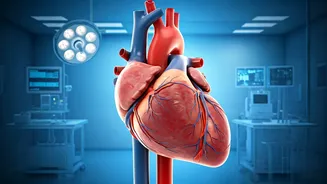Defining Heart Disease
Coronary heart disease is characterized by the narrowing or blockage of the arteries, usually caused by plaque buildup, reducing blood supply and potentially
causing angina or a heart attack.
High Blood Pressure
Hypertension damages arteries, contributing to plaque buildup and increasing CHD risk; lifestyle changes, including diet, exercise, and stress management, can help, sometimes requiring medication.
Elevated Cholesterol Levels
High LDL cholesterol contributes to CHD by forming plaque; regular screenings and dietary changes, sometimes including medication, are essential for managing cholesterol levels.
Smoking's Harmful Effects
Smoking damages blood vessels, reduces oxygen, and increases blood pressure, making it a major CHD risk; quitting smoking is crucial, and resources are available to help.
Diabetes and CHD
Diabetes damages blood vessels, increasing CHD risk; controlling blood sugar through diet, exercise, and medication is crucial for reducing risks.
Family History Matters
Family history increases CHD risk due to genetic factors; knowing family history helps assess personal risk and tailor preventative strategies with a doctor.
Managing and Preventing CHD
CHD management involves a heart-healthy diet, regular exercise, stress management, and regular check-ups; medical interventions may be needed.



















